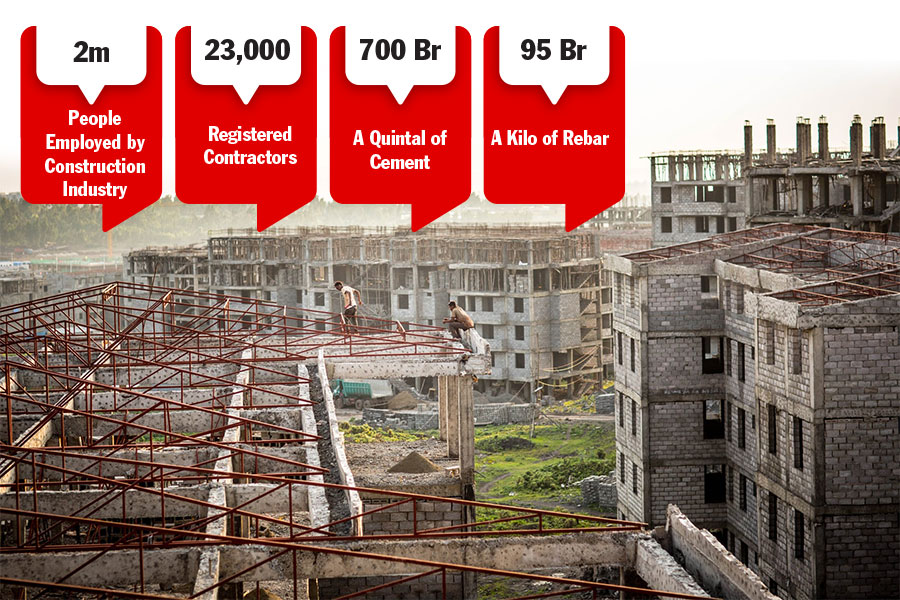
Commentaries | Aug 14,2021
Jul 7 , 2024
By Lucrezia Reichlin
At the end of April, in a speech at the Sorbonne, French President Emmanuel Macron suggested that European leaders should consider broadening the European Central Bank’s (ECB) mandate to include decarbonisation targets. His proposal has mostly been ignored; for many, it probably seems too radical to be worth discussing. But it is not radical, and disregarding it would amount to a major missed opportunity.
Like its independence, the ECB’s pricestability mandate has always been considered “untouchable.” But, the pursuit of price stability does not happen in a vacuum. The Maastricht Treaty, which established the legal framework for Europe’s monetary union, recognises this. While the treaty states that the ECB’s primary objective must be to maintain price stability, it also dictates that, “without prejudice to” that objective, the ECB should support the European Union’s (EU) broader economic policies, with a “view to contributing to the achievement” of the bloc’s objectives.
This has always been interpreted as a hierarchical mandate: price stability comes first, but other objectives – such as employment and financial stability – should also be pursued. When the ECB suggested, in its 2021 strategy review, that it would incorporate “climate change considerations” into its policy framework, it was operating on the assumption that climate would be secondary to price stability. But what happens when the ECB’s objectives clash?
The pursuit of price stability can, after all, involve trade-offs. Yet, there is currently no established ECB procedure for setting monetary policy when the quest for price stability conflicts with other EU priorities. Macron’s provocative proposal should force European leaders to reckon with this gap – beginning at the next ECB strategy review, planned for next year. The ECB is not alone.
Inflation-targeting central banks (like the Bank of England (BoE) or Nordic-country central banks) and the US Federal Reserve (which has a dual mandate) confront the same types of trade-offs. These central banks pursue their inflation targets on a mediumterm horizon, but allow some divergence in the short term, precisely to avoid or reduce transitional costs, such as lost employment or output. As former BoE Governor Mervyn King once said, “An inflation targeter is not an inflation nutter.”
But, as with the ECB, these central banks might need a more nuanced and flexible approach. Specifically, when getting inflation back to target quickly is likely to have high costs – in terms of employment, financial stability, and efforts to combat climate change – it might be wise to prolong the central bank’s time horizon. Formal criteria for linking costs to time horizons would have to be formulated.
Accounting for the climate transition will not be easy. Consider the impact of regulatory constraints on fossil-fuel technology – a key component of net-zero strategies. These work, like supply constraints arising from supplychain disruptions or geopolitical shocks, shifting the supply curve to the left and making it steeper. Under these circumstances, changes in demand could lead to price volatility, and inflation-targeting monetary policy might adversely affect employment.
When supply-side factors cause inflation, monetary policy’s impact is limited, so other instruments must be used to ease the constraint.
Though mainstream macroeconomic models assume that monetary policy does not affect potential output, empirical evidence suggests that steep interest-rate increases might reduce investment in sectors that are perceived to be riskier, even if they might prove more productive in the long run. Perhaps most important in our example is investment in research and development in green technology, which requires massive up-front investment. Monetary policymakers must, therefore, ensure that efforts to achieve the inflation target do not impede such investment.
While investment in green tech can be encouraged using financial and fiscal instruments, it remains sensitive to financial conditions. If central banks tighten those conditions to control inflation in the short run, they risk undermining productivity and sustainability and even fueling inflation in the longer run. After all, an economy that is less productive and more exposed to supply constraints and climate risks will be more vulnerable to inflation. Of course, there are also costs to delaying anti-inflationary interventions. The right balance must be struck.
Far from being an esoteric topic for academic economists to discuss among themselves, this is a serious practical challenge that central banks will have no choice but to face in the coming decades. Because the green transition involves rebalancing production away from “dirty” processes, it is likely to be characterised by temporary inflationary pressures. Central banks must ensure their response does not amplify the disruption and increase output costs.
Recognising this, some central banks have already incorporated flexibility into how they approach their mandates. But now, they must operationalise that flexibility by devising a transparent and research-based framework for managing the costs and benefits of inflation and other objectives. Macron’s suggestion should kick-start this process.
PUBLISHED ON
Jul 07,2024 [ VOL
25 , NO
1262]


Commentaries | Aug 14,2021

Commentaries | Nov 01,2025

Commentaries | Nov 16,2024

Fortune News | Mar 23,2022

Viewpoints | Oct 04,2025

My Opinion | Mar 26,2022

Viewpoints | Nov 16,2024

Fortune News | Mar 30,2022

Fortune News | Feb 19,2022

View From Arada | Jul 15,2023

Photo Gallery | 180221 Views | May 06,2019

Photo Gallery | 170418 Views | Apr 26,2019

Photo Gallery | 161439 Views | Oct 06,2021

My Opinion | 137261 Views | Aug 14,2021

Dec 22 , 2024 . By TIZITA SHEWAFERAW
Charged with transforming colossal state-owned enterprises into modern and competitiv...

Aug 18 , 2024 . By AKSAH ITALO
Although predictable Yonas Zerihun's job in the ride-hailing service is not immune to...

Jul 28 , 2024 . By TIZITA SHEWAFERAW
Unhabitual, perhaps too many, Samuel Gebreyohannes, 38, used to occasionally enjoy a couple of beers at breakfast. However, he recently swit...

Jul 13 , 2024 . By AKSAH ITALO
Investors who rely on tractors, trucks, and field vehicles for commuting, transporting commodities, and f...

Nov 1 , 2025
The National Bank of Ethiopia (NBE) issued a statement two weeks ago that appeared to...

Oct 25 , 2025
The regulatory machinery is on overdrive. In only two years, no fewer than 35 new pro...

Oct 18 , 2025
The political establishment, notably the ruling party and its top brass, has become p...

Oct 11 , 2025
Ladislas Farago, a roving Associated Press (AP) correspondent, arrived in Ethiopia in...

Nov 2 , 2025
The National Bank of Ethiopia (NBE) has scrapped the credit-growth ceiling that had s...

Nov 2 , 2025 . By SURAFEL MULUGETA
The burgeoning data mining industry is struggling with mounting concerns following th...

Nov 2 , 2025 . By YITBAREK GETACHEW
Berhan Bank has chosen a different route in its pursuit of a new headquarters, opting for a transitional building instea...

Nov 2 , 2025 . By BEZAWIT HULUAGER
Nib International Bank S.C. has found itself at the epicentre of a severe governance...